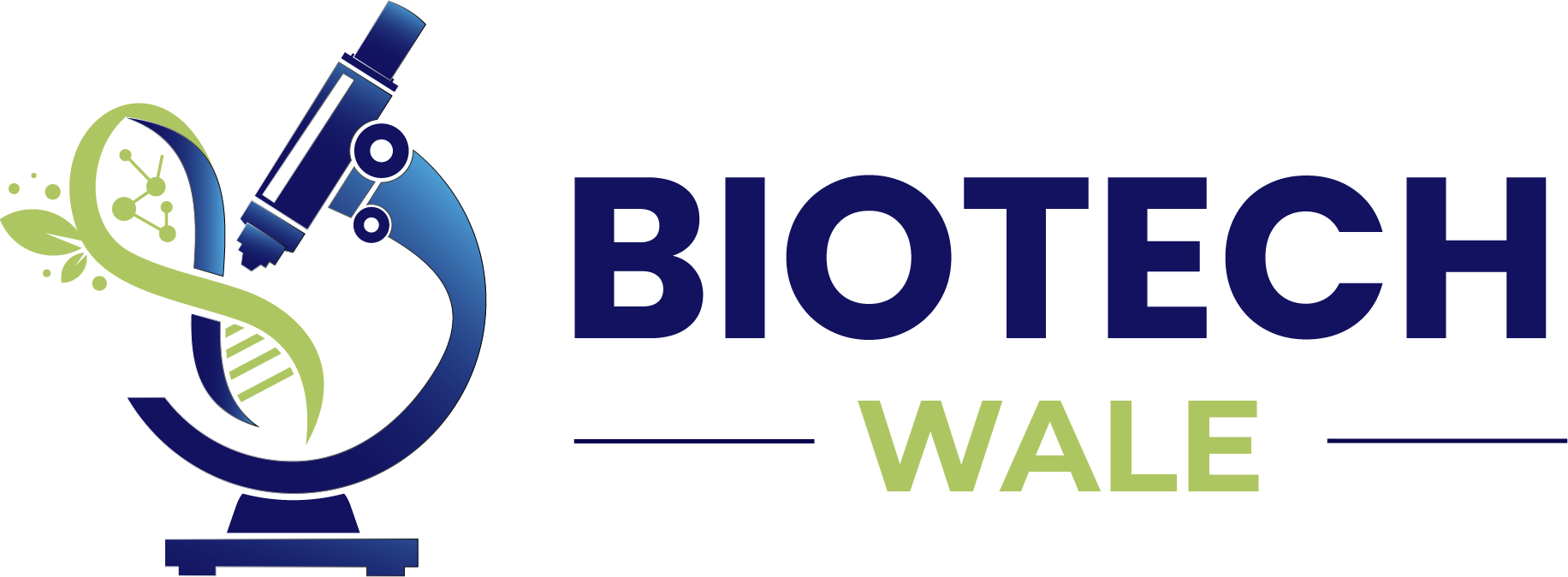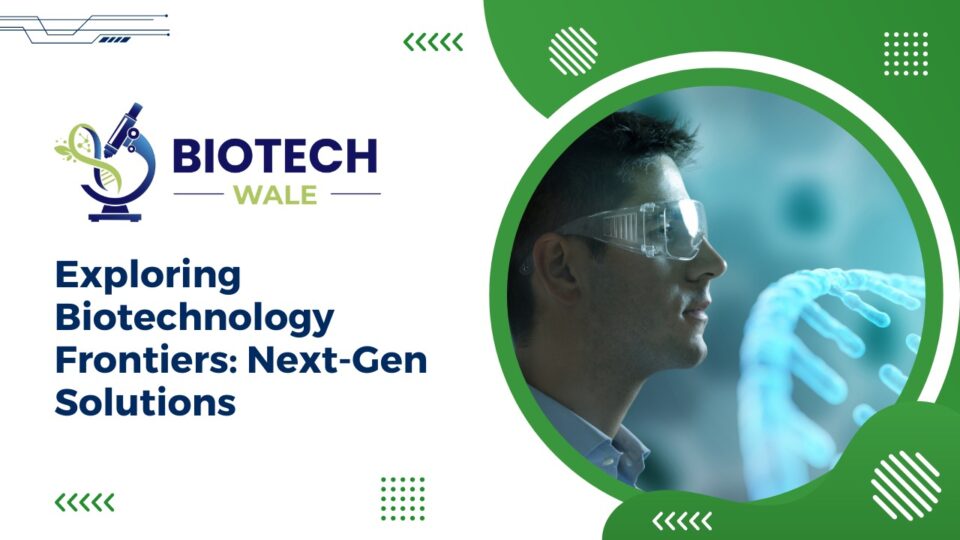Welcome to the exciting world of biotechnology, where science fiction meets reality! Get ready to dive into the cutting-edge advancements and next-gen solutions that are revolutionizing industries and shaping our future. From gene editing to precision medicine and synthetic biology, the possibilities seem endless. Join us on this journey as we explore the frontiers of biotechnology and uncover the potential benefits, ethical considerations, and impact on various sectors. Let’s embark on this thrilling adventure together!
What is Biotechnology?
Biotechnology, a cutting-edge field merging biology and technology, harnesses living organisms to develop innovative solutions. It involves manipulating biological systems at the molecular level to create products and processes that benefit society. From healthcare to agriculture and beyond, biotechnology encompasses a wide range of applications.
By leveraging genetic engineering techniques, scientists can modify DNA sequences in organisms to enhance desired traits or produce valuable substances. This enables the development of new drugs, improved crops with higher yields, and sustainable biofuels. Biotechnology plays a crucial role in advancing medical treatments through personalized therapies tailored to individual patients’ genetic makeup.
The field continues to evolve rapidly as researchers push boundaries and explore novel ways to address global challenges such as disease prevention, environmental sustainability, and food security. As we delve deeper into the realm of biotechnology, the possibilities for innovation and impact are limitless.
Advancements in Biotechnology
Biotechnology is a rapidly evolving field that has seen remarkable advancements in recent years. Scientists and researchers are continually pushing the boundaries of what is possible through innovative technologies and cutting-edge techniques.
One significant advancement in biotechnology is the development of gene editing tools like CRISPR-Cas9, which allows for precise modifications to genetic material with unprecedented accuracy. This breakthrough has opened up new possibilities for treating genetic diseases and creating genetically modified organisms for various purposes.
Another key area of progress is precision medicine, where treatments are tailored to individual patients based on their unique genetic makeup. This personalized approach holds great promise for improving patient outcomes and reducing side effects compared to traditional one-size-fits-all therapies.
Moreover, synthetic biology has revolutionized the way we can engineer biological systems by designing novel biological parts and systems from scratch. This interdisciplinary field has immense potential for applications ranging from healthcare to sustainability.
These advancements in biotechnology are paving the way for groundbreaking discoveries and innovations that have the potential to transform industries and improve lives around the world.
Next-Gen Solutions:
Biotechnology is rapidly evolving, paving the way for next-gen solutions that hold immense promise in various industries. Gene editing, a cutting-edge technology, allows scientists to precisely modify DNA sequences with unprecedented accuracy. This opens up possibilities for treating genetic disorders and developing more resilient crops.
Precision medicine is another breakthrough in biotech, customizing healthcare based on individual genetic makeup. By tailoring treatments to specific patients, precision medicine aims to enhance effectiveness and reduce side effects of medications.
Synthetic biology takes a cue from nature’s design principles to engineer biological systems for diverse applications. From biofuels to biomaterials, this innovative approach offers sustainable solutions that could revolutionize how we produce essential goods.
As biotechnology continues to push boundaries, it’s crucial to navigate potential benefits alongside ethical considerations and regulations. The future holds exciting challenges as we harness these advancements towards creating a healthier and more sustainable world.
A. Gene Editing
Gene editing has revolutionized the field of biotechnology by providing scientists with a powerful tool to make precise changes to an organism’s DNA. This technology allows for targeted modifications, corrections of genetic mutations, and even the potential for creating genetically modified organisms.
One of the most well-known examples of gene editing is CRISPR-Cas9, which acts like molecular scissors that can cut and modify specific sections of DNA. This breakthrough has opened up new possibilities in areas such as agriculture, medicine, and environmental conservation.
In medicine, gene editing holds promise for treating genetic diseases by correcting faulty genes responsible for conditions like cystic fibrosis or sickle cell anemia. Additionally, researchers are exploring using gene editing to develop personalized cancer therapies tailored to individual patients’ genetic profiles.
While the potential applications of gene editing are vast and exciting, ethical considerations surrounding issues like designer babies and unintended consequences on ecosystems must be carefully addressed as this technology continues to advance.
B. Precision Medicine
Precision medicine is a cutting-edge approach that tailors medical treatment to individual characteristics. By analyzing genetic, environmental, and lifestyle factors, precision medicine aims to provide personalized care for patients.
This innovative technique allows healthcare providers to develop targeted therapies based on a patient’s unique genetic makeup. Instead of employing a one-size-fits-all approach, precision medicine focuses on delivering treatments that are most effective for each individual.
Through the use of advanced technologies like genomics and data analytics, precision medicine has the potential to revolutionize healthcare by improving treatment outcomes and reducing adverse reactions. By identifying specific genetic markers associated with diseases, healthcare professionals can intervene earlier and more effectively.
The promise of precision medicine lies in its ability to usher in a new era of customized healthcare solutions designed to address the diverse needs of patients. With ongoing research and technological advancements, the future of precision medicine looks promising for enhancing patient care across various medical fields.
C. Synthetic Biology
Synthetic biology is like a playground for scientists, where they design and engineer biological systems from scratch. It’s the ultimate fusion of biology and engineering, creating novel organisms with specific functions. Picture it as nature’s Lego set – but on a molecular level.
By manipulating DNA sequences, researchers can create living machines that produce chemicals, materials, or even medicine. Imagine bacteria programmed to clean up oil spills or yeast engineered to produce biofuels efficiently.
The possibilities are endless in synthetic biology; it opens doors to sustainable solutions for energy production, environmental conservation, and healthcare advancements. However, as with any emerging technology, there are ethical concerns surrounding genetic modification and potential risks associated with releasing modified organisms into the environment.
Despite these challenges, the field of synthetic biology continues to push boundaries and offer innovative solutions to complex problems across various industries.
Potential Benefits and Concerns of Next-Gen Biotech
With the rapid advancements in biotechnology, next-generation solutions like gene editing, precision medicine, and synthetic biology offer a myriad of potential benefits. These technologies have the potential to revolutionize healthcare by enabling personalized treatments tailored to individual genetic makeups.
Gene editing tools such as CRISPR-Cas9 hold promise for curing genetic diseases by targeting specific genes with precision. Precision medicine aims to provide more effective and targeted therapies based on an individual’s unique genetic characteristics, leading to better treatment outcomes.
However, along with these promising benefits come concerns regarding ethical considerations and the need for stringent regulations to ensure responsible use of these powerful technologies. There are fears about unintended consequences such as off-target effects in gene editing or data privacy issues in precision medicine.
Despite these concerns, the potential benefits of next-gen biotech are vast and could significantly impact various industries beyond healthcare, including agriculture, energy production, and environmental conservation. As we navigate this new frontier in biotechnology, it is crucial to strike a balance between innovation and ethical responsibility for a sustainable future.
Ethical Considerations and Regulations
As biotechnology continues to push boundaries, ethical considerations and regulations play a crucial role in guiding its development. The ability to manipulate genes and create custom organisms raises questions about the potential consequences of these actions on society and the environment.
Ensuring that biotechnological advancements uphold moral standards while promoting innovation is essential. Regulations must be put in place to safeguard against misuse or unintended harm from emerging technologies.
Balancing the pursuit of scientific progress with ethical principles requires collaboration between scientists, policymakers, and the public. Transparency in research practices and open dialogue about the implications of biotech innovations are key to building trust and addressing concerns.
Ethical dilemmas such as genetic discrimination, environmental impact, and consent for genetic testing pose complex challenges that require thoughtful consideration. Striking a balance between advancing technology for societal benefit while mitigating potential risks remains an ongoing discussion in the field of biotechnology.
Impact on Various Industries
Biotechnology is revolutionizing various industries, from healthcare to agriculture and beyond. In the pharmaceutical sector, next-gen biotech solutions like precision medicine are leading to personalized treatments tailored to individual patients, improving outcomes and reducing side effects.
In agriculture, gene editing techniques are being used to develop crops that are more resistant to pests and diseases while requiring fewer resources like water and pesticides. This not only boosts yields but also promotes sustainable farming practices.
The cosmetic industry is benefiting from biotechnology advancements by incorporating bio-based ingredients that are safer for consumers and the environment. From cruelty-free testing methods to innovative skincare products, biotech is reshaping beauty standards worldwide.
Even the energy sector is experiencing a transformation with synthetic biology enabling the production of biofuels from renewable sources like algae. This shift towards cleaner energy alternatives aligns with global efforts towards sustainability and combating climate change.
As biotechnology continues to evolve, its impact on various industries will be profound, driving innovation and fostering a more sustainable future for all.
Future Possibilities and Challenges
The future of biotechnology holds endless possibilities and challenges that continue to shape the world we live in. From personalized medicine tailored to an individual’s genetic makeup to sustainable agriculture through genetically modified crops, the potential for innovation is vast.
One of the key challenges lies in ensuring ethical standards are upheld as technology continues to advance rapidly. Issues surrounding data privacy, gene editing ethics, and equitable access to new treatments must be carefully navigated.
As biotechnology evolves, it opens up new opportunities for collaboration across industries such as healthcare, agriculture, environmental conservation, and more. The integration of cutting-edge technologies like artificial intelligence and big data analytics will drive further breakthroughs in the field.
However, with great advancements come great responsibilities. It is crucial for regulatory bodies and policymakers to stay ahead of technological developments to address potential risks effectively. Balancing innovation with safety and ethical considerations remains a critical challenge moving forward.
Conclusion
Biotechnology is a field that continues to push boundaries and redefine what is possible in the world of science and innovation. With advancements like gene editing, precision medicine, and synthetic biology leading the way, next-gen solutions are revolutionizing industries across the board.
While the potential benefits of these technologies are vast – from personalized healthcare to sustainable agriculture – there are also concerns regarding ethical implications and regulatory challenges that must be addressed. As we navigate this rapidly evolving landscape, it’s crucial to strike a balance between progress and responsibility.
The impact of biotechnology reaches far beyond laboratories and research facilities, influencing various industries such as healthcare, agriculture, energy, and environmental conservation. The future possibilities seem endless as we uncover new ways to harness biological systems for the betterment of society.
As we look ahead to what lies on the horizon for biotechnology, one thing remains certain: our ability to innovate and adapt will shape not only how we live today but also pave the way for a more sustainable tomorrow.





Average Rating